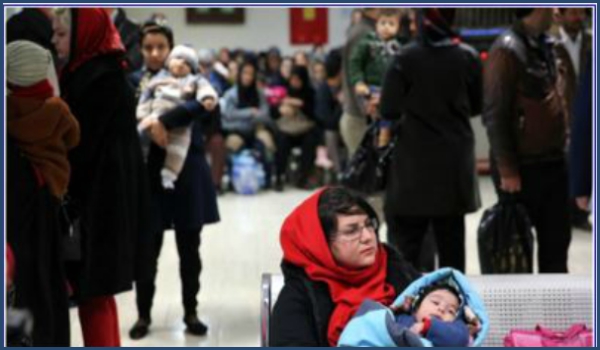
A regressive law to boost the population has restricted the reproductive choices and rights of all Iranian women.
In the early 1990s, Iran had one of best family planning programmes in the developing world. From 1980 to 2010, it managed to cut the average number of children each woman bore from six and a half to two. But these gains have since been reversed and all Iranian women are suffering under regressive legislation passed in 2015. Though, of course, some are suffering more than others.
As a sexual and reproductive health and rights advocate, I have been working with marginalised women’s collectives in under-served districts of Tehran for five years. I have seen how laws like the Comprehensive Population and Exaltation of Family Bill (or Bill 315, as it is known) most directly and severely affect the poorest women: sex workers, those with drug abuse issues, rural, migrant and ethnic minority women – those who were highly dependent on state provision of contraception.
Bill 315 was passed by Iran’s Islamic Consultative Assembly on November 2015, by 289 men and nine women. This legislation aims to boost population growth by encouraging early marriage and repeated childbearing… It mandates that all private and public entities give hiring priority, in sequence, to men with children, married men without children, and married women with children. It prevents unmarried men and women from assuming teaching positions or obtaining licenses to practice family law. It calls for the “de-judicialisation” of family disputes with a view to preventing divorce. It creates new barriers to divorce, described as “an anti-value with socially harmful consequences on spouses and children”.
Bill 315 is an all-encompassing denial of women’s agency and their rights to decide freely whether and when to marry, divorce, or have children. It codifies women’s discrimination in the workplace. Family planning funding, which had significantly increased women’s access to modern contraception over the last two decades, was cut not long after the law came into force…
The government has since halted all free family planning services. Family planning information has been removed from health centres, which are no longer allowed to distribute contraceptive pills and condoms, insert IUDs (intrauterine devices) or perform permanent contraceptive surgeries.
Doctors and nurses are obligated to encourage women to continue unwanted pregnancies and have the large families our grandmothers were forced to have. At school, classes on the need for population controls have been replaced by those encouraging marriage and bountiful reproduction…
Wealthier women can still buy contraception and get abortions on the thriving black market that has developed under Bill 315. For those who can pay for it, surgical abortion for an early pregnancy is available for between 10,000,000 and 40,000,000 Rial ($200-400), depending on where you go…
FULL TEXT: Open Democracy, by Zaynab H, 29 August 2018 ; PHOTO, 2014



